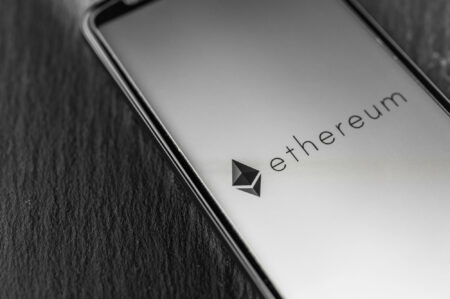What has been happening around Blockchain Technology and Cryptocurrencies this week? The most relevant local and international developments as well as appealing background reports in a pointed and compact weekly review.
Fundamental developments in the field of digital assets are sometimes overlooked by the dominant headlines on their price movements. In fact, the space has made remarkable progress in recent months, with a number of established financial services firms positioning themselves in the emerging sector. JPMorgan, Goldman Sachs, Fidelity Investments and Deutsche Börse are just a few prominent names that illustrate this. All of them have noticed a growing demand for crypto-assets and have decided to offer corresponding services to their clients. Also in Switzerland, a considerable ecosystem around digital assets is emerging from the so-called "Crypto Valley". The local regulatory authorities were quick to create legal certainty with clear guidelines, while other jurisdictions had barely begun to deal with the matter.
With the increasing overall market capitalisation of cryptocurrencies and the progressive institutionalisation of the industry, regulatory frameworks in the area of anti-money laundering (AML/KYC) are visibly catching on. This is clearly illustrated by the largest crypto exchange in terms of volume, Binance. For a long time, the company was known for a rather relaxed attitude towards AML/KYC. The exchange also had no established headquarters and refrained from registering as a trading platform in a number of countries. In recent months, a wave of regulatory crackdowns in various jurisdictions against the crypto exchange was observable, in some cases resulting in outright bans. To counteract the situation, the company has recently introduced several measures. These include stricter verification processes, limiting leverage opportunities for small investors and the discontinuation of futures offerings in certain countries.
The changing regulatory environment is also evident in decentralized exchanges' adoption. This week, the development team behind the largest decentralized trading platform Uniswap, restricted access to over 100 crypto tokens. Their focus is on synthetic equity tokens and options contracts. These are classified as securities, just as recently outlined by SEC Chairman Gary Gensler. To avoid a required securities trading license, the U.S.-based development team restricted access to the affected tokens. However, the computer code in the form of a smart contract that is irrevocably located on the Ethereum blockchain can still be accessed using alternative applications.
Retail investors increasingly pushed into securities trading during the "lockdown" era. Providers such as the developers of the Robinhood trading platform have benefited from these developments. The company caused a stir at the beginning of the year with trading restrictions on "meme stocks" such as GameStop and AMC. Despite this debacle, user numbers grew exponentially. In addition to stocks and derivatives, the platform has also recently begun trading in cryptocurrencies. The company capitalized on the impressive growth figures this week by going public. Accompanied by the investment banks Goldman Sachs and JPMorgan, the stock market debut took place at a valuation of 35 billion US dollars.
In addition: Credit card company Mastercard recently announced the launch of a funding program for blockchain startups. The ecosystem support is intended to drive innovation in digital assets. Mastercard is particularly interested in tokenization, data accuracy, digital security and linking traditional finance with the new world of finance. Seven global crypto startups are part of the new program. They are involved with a new type of marketplace for NFTs, building an air-cooled vault, and creating sustainable digital assets, to name a few.
Selected articles in the weekly review:
Several established financial service providers have positioned themselves in the emerging field of digital assets.
https://cryptovalleyjournal.com/focus/background/institutions-getting-ready-for-digital-assets/
The world's largest crypto exchange responds to regulatory requirements.
Decentralized financial applications are gradually coming into the focus of regulators.
https://cryptovalleyjournal.com/focus/legal-and-compliance/uniswap-decentralized-stock-exchange-under-regulator-pressure/
The mobile trading app saw strong growth and is completing an IPO.
Crypto startups are funded through the Start Path program.
Would you like to receive the Weekly review and other interesting formats via push message?




